Earth
Sign up for our newsletter
We summarize the week's scientific breakthroughs every Thursday.
-
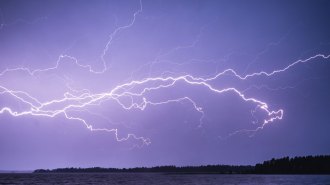 Earth
EarthTwo lightning megaflashes shattered distance and duration records
Satellite data show that the two extreme bolts, both appearing over South America, more than doubled the previous records.
-
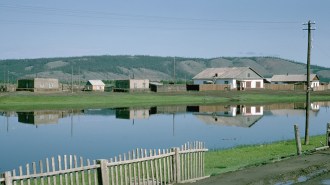 Climate
ClimateA Siberian town hit 100 degrees, setting a new record for the Arctic Circle
Verkhoyansk’s high temperature, which has yet to be confirmed, follows a six-month period of record heat in the region.
-
 Tech
TechBubble-blowing drones may one day aid artificial pollination
Drones are too clumsy to rub pollen on flowers and not damage them. But blowing pollen-laden bubbles may help the machines be better pollinators.
-
 Earth
EarthMachine learning helped demystify a California earthquake swarm
Computer algorithms helped scientists find that circulating groundwater probably triggered a four-year-long series of tiny quakes in Southern California.
-
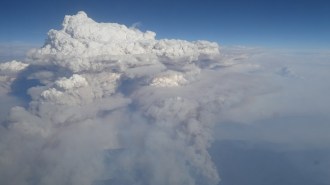 Earth
EarthSmoke from Australian fires rose higher into the ozone layer than ever before
The catastrophic wildfires in Australia around New Year’s generated a massive smoke plume that still hasn’t dissipated in the stratosphere.
-
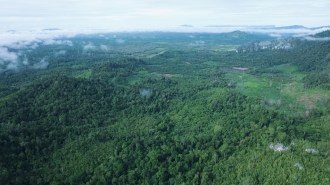 Environment
EnvironmentHow giving cash to poor families may also save trees in Indonesia
Indonesia’s poverty reduction program also reduced deforestation by 30 percent, researchers say.
By Megan Sever -
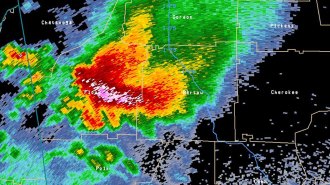 Earth
Earth50 years ago, scientists were getting a better glimpse inside storms
In 1970, experts were harnessing technologies that provided a three-dimensional picture of the inside of a storm.
-
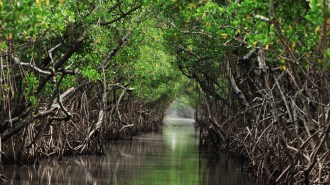 Climate
ClimateRapid sea level rise could drown protective mangrove forests by 2100
Mangroves have kept up with rising water so far, but new research reveals their limits.
-
 Earth
EarthChicxulub collision put Earth’s crust in hot water for over a million years
An asteroid impact 66 million years ago caused hot fluids to circulate in the crust, creating conditions that may have been ideal for microbial life.
-
 Climate
Climate‘Tree Story’ explores what tree rings can tell us about the past
The book "Tree Story" explains how scientists decipher tree rings to discover clues about past climates and ancient civilizations.
-
 Life
LifeNeon colors may help some corals stage a comeback from bleaching
When some corals bleach, they turn bright colors. Stunning hues may be part of a response that helps the corals recover and reunite with their algae.
-
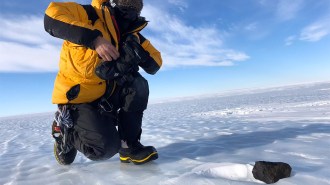 Planetary Science
Planetary ScienceMeteorites might be more likely to strike near the equator
Meteorites from Antarctica have helped scientists assess the total number likely to hit Earth every year — and where they are most likely to fall.
By Shannon Hall